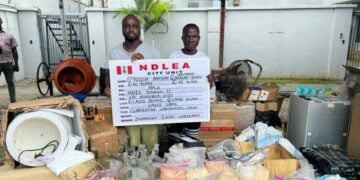MTN Communications Nigeria Limited, three federal universities and 42 other organisations have obtained permits to build captive power plants in response to increased instability of the national electricity grid.
The Nigerian Electricity Regulatory Commission (NERC), in its 2024 report, stated that 46 bulk electricity consumers were licensed in 2024 to develop their own electricity. The 46 entities would generate a total of 289 megawatts of electricity.
The report showed that MTN was granted permits to build four captive power generation plants in Lagos State with a combined capacity of 15.94 megawatts (MW).
The University of Abuja, the University of Calabar & Teaching Hospital, and the University of Agriculture, Michael Okpara, Umudike, were also granted licences to generate 3MW, 7MW and 3MW of captive power respectively.
Other companies that also got licensed are SweetCo Foods Limited with 1.50MW; African Steel Mills with 20MW; Armilo Plastics, 1.13MW; Royal Engineered Stones, 4MW; West African Ceramics Limited, 10MW; Ro-Marong Nigeria Ltd, 4.40MW, and Psaltry International Company Limited, 1.10MW.
NERC’s recent approvals of multiple captive power generation permits across various sectors highlight the increasing shift towards self-generated power in response to grid challenges.
This trend underscores the urgent need for infrastructure and policy changes to strengthen Nigeria’s public electricity network and address the demand gap.
NERC said, “According to the report, the Commission issues captive power generation permits to entities that aim to own and maintain power plants for their own use and not for sale to a third party.”
These bulk power users, primarily industrial and commercial entities, cited frequent outages, unreliable supply, and fluctuating costs as key reasons for the move.
Under the arrangement, a total of 138 megawatts of electricity would be generated by the 22 bulk electricity consumers.
The NERC has blamed the shift from the national grid on power fluctuations and low supply. That grid frequency is a crucial power quality parameter that industrial customers are particularly concerned about due to the sensitivity of their heavy-duty machinery.
It stated that “in industrial production assembly lines, the machines are designed to operate only within pre-set frequency tolerance limits and therefore often have a low tolerance for frequency fluctuations.
The fragile national grid has struggled to meet the demand of large-scale consumers, prompting these organisations to invest in their own power generation facilities. These companies aim to secure a stable and continuous power supply essential for their operations by producing electricity on-site.
Captive power generation allows these consumers to reduce dependency on the national grid, ensure operational continuity, and often achieve cost savings. With captive plants usually connected to or independent of the grid, 46 consumers are leveraging this strategy to mitigate power interruptions and price volatility risks.





